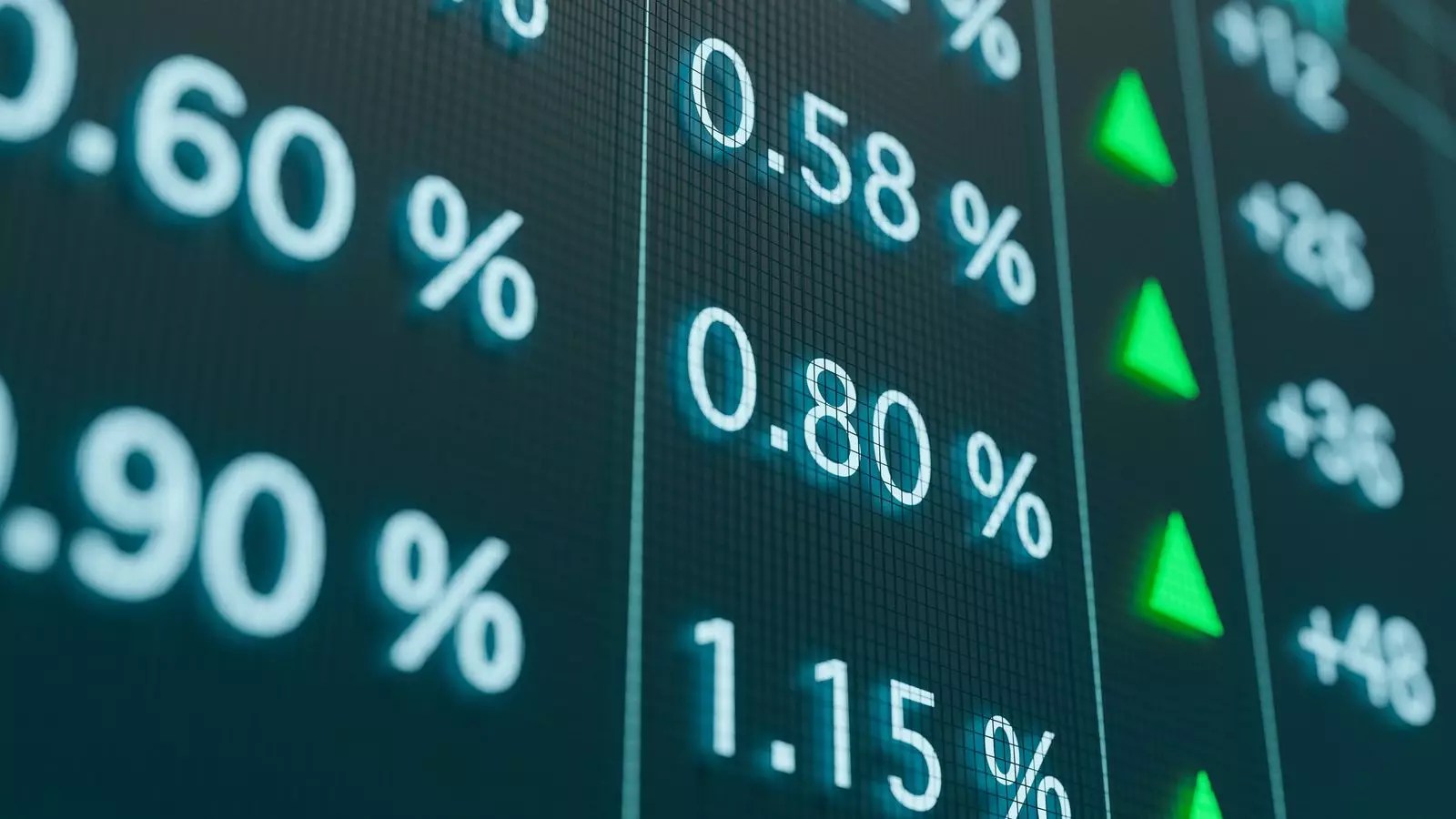In an unsettling turn of events, the UK’s long-term bond yields surged to levels not seen since 1998, casting a pall over investor confidence and raising serious questions about the country’s economic outlook. The anomalous increase, occurring despite the Bank of England’s rate cut, exposes a deep-rooted vulnerability: markets are reacting not to immediate policy shifts but to an undercurrent of doubt about Britain’s fiscal stability. This disconnect underscores how fragile trust in economic institutions can become, especially when behavioral psychology and macroeconomic fundamentals diverge.
What makes this situation so disconcerting is the absence of a clear catalyst. Typically, rising bond yields signal expectations of higher inflation or government borrowing costs, but the Bank’s intervention suggests the opposite—an attempt to stabilize, not destabilize. The divergence hints at a market conversation driven by fear and uncertainty rather than rational analysis. Investors seem to be pricing in risks that extend beyond immediate policy moves, reflecting long-term concerns about political stability, fiscal discipline, and the UK’s global role.
Is This a Unique British Illness or a Symptom of a Global Crisis?
While the UK’s predicament appears dramatic, it should be understood within a broader context. Across the G7, bond yields are trending upward, driven by swelling deficits and fiscal mismanagement. The US, France, and other European countries are engaged in heavy borrowing—funding military expansions, social programs, and stimulus efforts—all at a time when global economic growth is slowing.
This trend reveals a paradox at the heart of modern liberal economies. Governments continue to borrow heavily under the guise of securing economic stability and social welfare, yet this very borrowing is undermining investor confidence. As a result, borrowing costs are rising not solely for Britain but for multiple advanced economies simultaneously. Britain’s outlier status is partly historical, partly policy-related—an indication of missed reforms and mounting political chaos that threaten to destabilize its fiscal foundation.
Furthermore, Britain’s ongoing struggles amplify the perception that its political leadership has failed to offer a coherent, forward-looking economic strategy. Instead of rallying around long-term fiscal responsibility, recent decisions seem reactive and short-sighted, fueling skepticism among investors. The global environment, with strained international debt markets and rising geopolitical tensions, only exacerbates this unease.
The Looming Crisis of Global Debt Dependence
Perhaps the most alarming insight emerging from this turbulence is the precarious future of global debt markets. For decades, wealthy nations largely relied on a handful of surplus countries—particularly China and other Asian economies—to finance their burgeoning deficits. These “lenders of last resort” provided a cushion, allowing borrowing to escalate while maintaining global liquidity.
However, recent trends suggest this system is under immense strain. Countries like China are grappling with their own economic challenges, threatening to divert their capital elsewhere or even to reduce the purchase of foreign debt. If major creditors pull back or diversify their portfolios, the entire financing paradigm for Western economies could collapse. Without a reliable pool of international lenders, governments will face soaring borrowing costs, forcing painful austerity measures or risking currency crises.
This potential shift marks a destabilizing moment: it exposes the fragility of cross-border financial flows that undergird the global economy. It underscores how interconnected and fragile the current economic architecture truly is, vulnerable not only to political missteps but also to systemic shifts in global capital allocation.
Will Fiscal Eccentricity Ultimately Undermine Liberal Democracy?
The deeper narrative behind these market movements is a critique of present-day liberal economic policies. The emphasis on stimulus, social spending, and military expansion—all pursued with little regard for fiscal discipline—risks undermining public trust and the stability of the very systems meant to uphold it.
Many policymakers seem intoxicated by short-term gains, blinded to the long-term consequences of debt accumulation. As markets rebel against these policies’ sustainability, the very legitimacy of liberal democracy’s economic model comes into question. When interest rates rise and borrowing becomes prohibitively expensive, governments face stark choices: tighten spending, risk social unrest, or continue reckless borrowing with the hope that global lenders or future generations will foot the bill.
This delicate balancing act exposes the core flaw of a liberalism that champions growth and redistribution without adequate regard for fiscal prudence. Paradoxically, the most vulnerable are those who rely on a stable economic environment—ordinary citizens, pensioners, and middle-class workers—who pay the price for political and economic hubris.
—
The current market chaos, especially in UK government bonds, exposes a troubling truth: the world’s financial foundation is increasingly insecure. The illusion of perpetual growth and limitless borrowing is crumbling beneath the weight of mounting debt, political chaos, and shifting global allegiances. For liberal democracies committed to social progress, this moment demands a fundamental reckoning—a shift towards sustainable policies grounded in fiscal responsibility—not just for economic stability but for the preservation of social cohesion and democracy itself.

